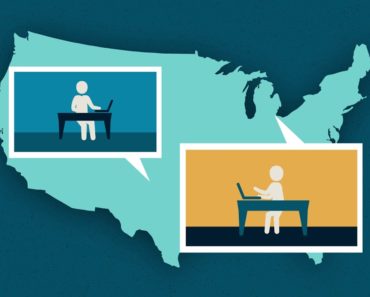Living within your means, budgeting, and saving for important goals should be discussed openly — and they should be discussed often.
In many households, money is a taboo topic. Some parents would rather talk to their kids about sex than money! Many parents say they avoid talking about money with their kids because they don’t feel qualified to do it properly. They don’t know how to approach it, and they don’t have the information they need. Many also feel they’re not equipped to handle some of the uncomfortable questions that their kids may ask, like “Are we rich?”, “How much money do you make?”, and “How much is our mortgage?” The answers to these questions are private family matters and probably not something you want to share with the whole world, so you have to keep in mind your child’s age and maturity when answering them. Ask your kid questions to make sure you understand what they’re really asking. Often, when kids ask such questions, they’re really just looking for reassurance that everything’s okay. But if they ask, it’s best to find an answer that is honest, one that stresses confidentiality and trust, and one that is only as detailed as you think appropriate. The discussion can often take place by dealing with general concepts rather than getting into specific numbers—concepts such as:
- the meaning of “rich”;
- the importance of income, i.e., not that it should be a certain amount, but that it’s sufficient to provide a stable life;
- how mortgages work; and
- good debt versus bad debt.
While it may be taboo to expose confidential family information, there should be nothing distasteful about teaching your kids general money management skills. Living within your means, budgeting, and saving for important goals should be discussed openly—and they should be discussed often.
The Big Picture: Household Finances
One of the goals of teaching your kids about money is to make them aware of the cost of running a household. Not that your kids should feel responsible for making ends meet—that’s your job as a head of the household. But they can at least become aware of the cost of their needs and wants and get a better understanding of how providing for them fits into the bigger picture. Kids, especially teenagers, can seem selfish because they tend to focus only on their own needs and wants. With more information, though, they will come to realize that you have to prioritize and balance all of the family’s costs of living. It helps them put things in the proper perspective.
Budgeting: Overhead expenses and discretionary spending
Raising kids is expensive. According to the website MoneySense, the estimated cost of raising a child in Canada from birth to adulthood (in today’s dollars) is approximately $13,366 a year or just over $250,000—and these costs are just some of the components of your household budget. For some families, budgeting is a dreaded activity, right up there with dieting! Both words bring up thoughts of deprivation. But if you think of a budget as a spending plan, one that will let you have and do the things in life that are most important to you and that are aligned with your values, it makes an otherwise tedious process meaningful and rewarding.
When creating a spending plan, keep in mind that your expenses fall into two broad categories: overhead expenses and discretionary spending. Most overhead expenses are fixed costs and are governed by a contract. They’re easier to plan for than variable expenses because they usually cost the same amount every month (though some fixed costs, such as annual home insurance premiums, are periodic or occasional). These expenses can’t really be avoided because they’re the basic costs of living. Examples of overhead expenses are:
- rent or mortgage payments;
- property taxes;
- car payments or other transportation costs; and
- cable, internet, or cell phone bills.
Other overhead expenses like groceries, clothing, utilities, and gas for the car are a bit more variable—the amount you spend may change from month to month—but you can’t eliminate these expenses altogether.
Discretionary expenses are costs incurred at your discretion. You have a lot of flexibility as to whether to incur these costs at all, and, if you do, how much to spend. Examples include:
- restaurant meals and entertainment;
- recreational shopping;
- personal care;
- vacations;
- club dues;
- hobbies; and
- gifts.
So, how do you budget?
The initial step is to pay yourself first automatically transferring a certain sum of money every month to a designated account. Depending on your goals and objectives, this can be either a regular savings account or a tax-advantaged account like a Registered Retirement Savings Plan (RRSP) or a Tax-Free Savings Account (TFSA). You get used to living without this money, and what remains after you’ve paid yourself first goes toward covering your overhead expenses. Any funds that remain after you cover all of your overhead expenses are available for discretionary spending or additional savings.
Excerpt from Raising Money Smart Kids by Robin Taub, a CPA Canada book published by Cormorant Books (www.cormorantbooks.com). Copyright 2020, Robin Taub.

































